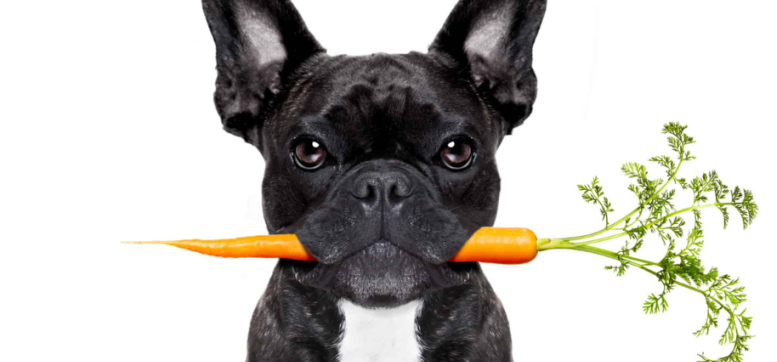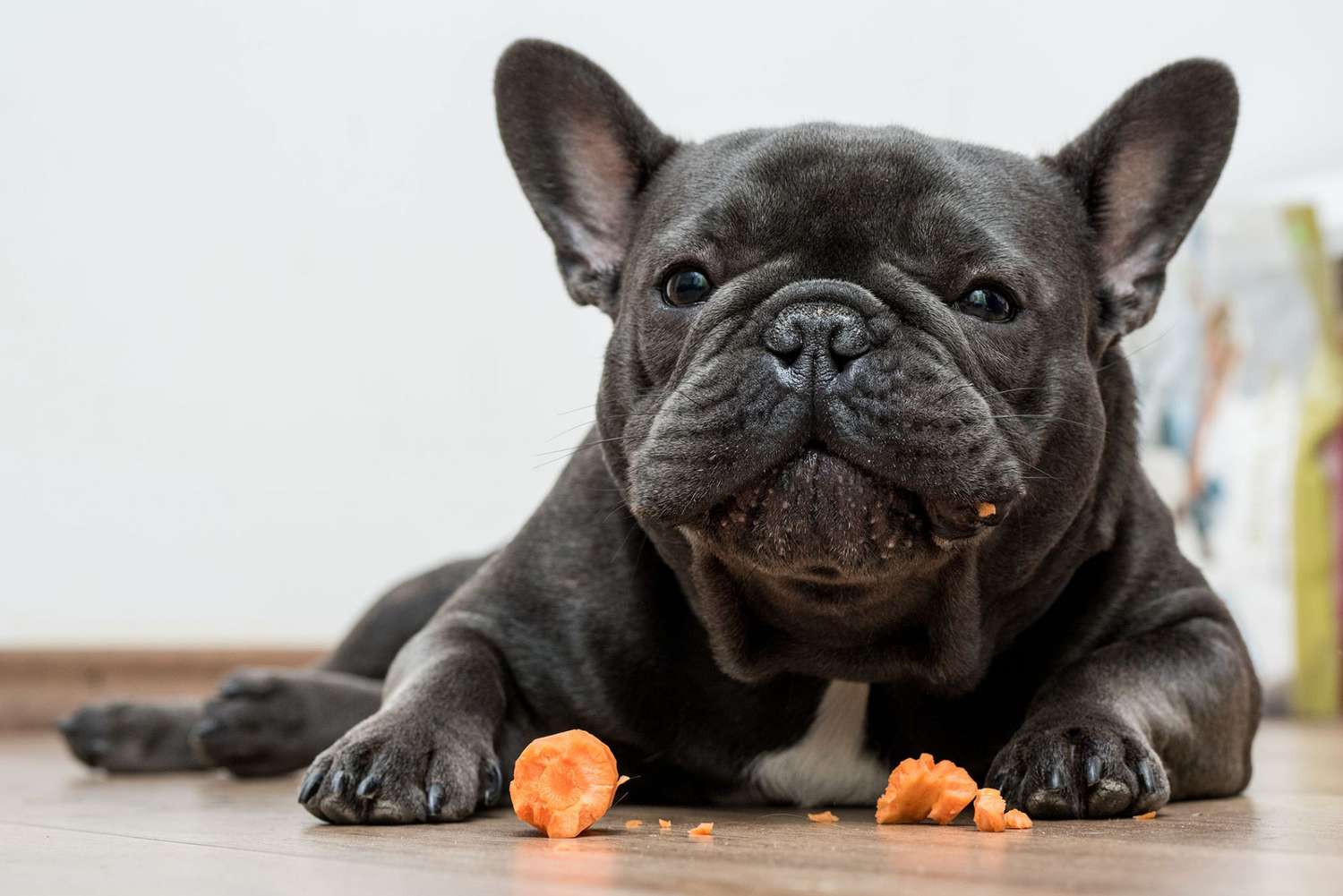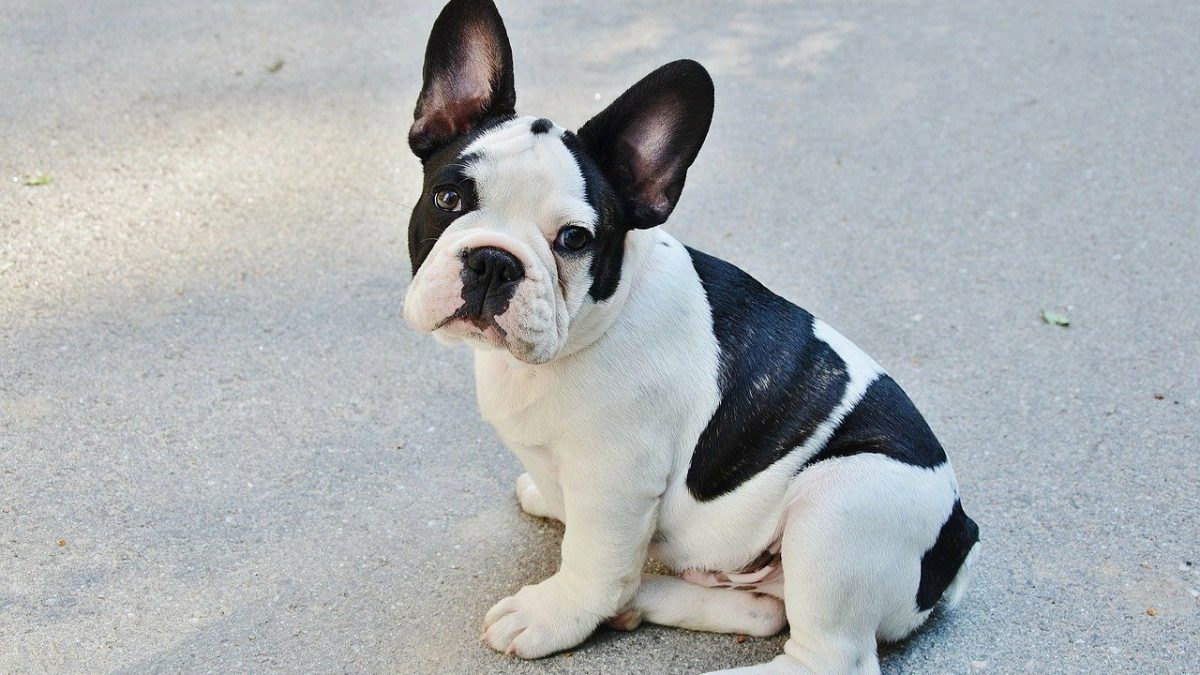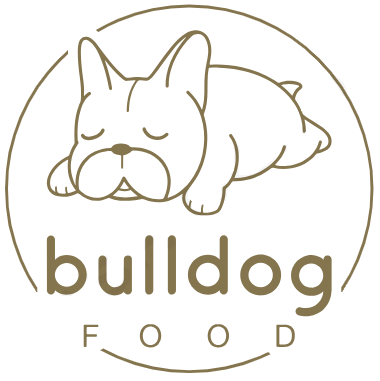
Ever wondered, “Can Frenchies have carrots?” Let’s face it – getting some natural fiber into our dogs’ diets can be a real challenge. But here’s some good news: carrots are one of those rare veggies that many pups, including Frenchies, go nuts for! They’re crunchy, slightly sweet, and packed with nutrients.
So, if you want to add a healthy twist to your Frenchie’s snack time, we provide the perfect solution. With this as the right guide, you can safely incorporate these orange delights into your pet’s meal!

Can Frenchies Have Carrots?
Yes, French Bulldogs can indeed have carrots! In fact, these crunchy orange vegetables are one of the top foods our Frenchies can eat. They are generally safe and can be a healthy addition to your Frenchie’s diet when given in moderation.
Carrots are low in calories, high in fiber, and packed with vitamins and minerals that can benefit your dog’s health. After reading the next section, you will want to incorporate some of this veggie to your pup’s meal tonight.
Health Benefits of Carrots for French Bulldogs
-
Improved Vision
Carrots are rich in beta-carotene, which the body converts to vitamin A. This nutrient is crucial for maintaining good eye health.
As Frenchie parents, we know that they are prone to certain eye issues like cherry eye or corneal ulcers. The vitamin A in carrots can help support overall eye health and potentially reduce these problems.
-
Dental Health

The crunchy texture of raw carrots can act as a natural toothbrush for your Frenchie. As they chew on a carrot, it helps scrape away plaque and tartar buildup on their teeth, contributing to fresher breath and reducing the risk of dental issues. Frenchies are prone to to dental problems due to their facial structure, so this is definitely a huge advantage for them.
-
Digestive Health
Do you know that carrots are an excellent source of dietary fiber? Our small companions sometimes struggle with digestive issues, and the fiber in carrots can help regulate bowel movements and prevent constipation. It also contributes to a feeling of fullness, which may be helpful if you’re trying to manage your Frenchie’s weight.
-
Weight Management
French Bulldogs are susceptible to obesity, which can lead to various health issues. Carrots, being low in calories and high in fiber, can be an excellent treat option for Frenchies on a weight management plan. They provide a satisfying crunch without adding many calories to your dog’s diet.
-
Immune System Support
Carrots are packed with antioxidants, including beta-carotene and vitamin C. These nutrients help boost the immune system, which can be particularly beneficial for French Bulldogs. A strong immune system can help your Frenchie fight off infections and recover more quickly from illnesses.
Some of the best commercial foods for French Bulldogs also incorporate carrots into their recipes, harnessing the veggie’s antioxidant properties to enhance the nutritional value of the product.
-
Skin and Coat Health
The vitamins and minerals in carrots, particularly vitamin A and beta-carotene, contribute to maintaining healthy skin and a shiny coat. For French Bulldogs, who can be prone to skin issues, these nutrients can help keep their skin healthy and their coat looking its best.
Potential Risks and Considerations
As you can see, carrots are usually a safe bet for your Frenchie. According to our veterinarians, however, it’s worth keeping an eye out for a few potential hiccups:
-
Choking Hazard
French Bulldogs, with their flat faces and sometimes enthusiastic eating habits, can be at risk of choking on large pieces of food. Carrots, especially when given in large chunks, can pose a choking hazard. It’s crucial to cut carrots into appropriate sizes based on your Frenchie’s size and chewing habits.
-
Digestive Upset
Introducing any new food too quickly can lead to digestive issues in dogs. Carrots are high in fiber, which, while generally beneficial, can cause stomach upset, diarrhea, or gas if introduced too quickly or in large amounts. This is especially important to consider for French Bulldogs, who can have sensitive stomachs.
-
Allergies

While rare, some dogs can be allergic to carrots. Signs of an allergic reaction may include itching, swelling, difficulty breathing, or gastrointestinal upset. If you notice any of these symptoms after feeding your Frenchie carrots, discontinue use and consult your veterinarian immediately.
-
Sugar Content
Carrots contain natural sugars. While this isn’t typically a problem for healthy dogs, it’s something to be aware of if your Frenchie has diabetes or is overweight. The sugar content in carrots is relatively low, but it’s still important to factor this into their overall diet, especially if you’re managing their weight or blood sugar levels.
-
Pesticide Exposure
If not properly washed, carrots may contain residual pesticides that could be harmful to your dog. Always thoroughly wash carrots before feeding them to your Frenchie to remove any potential chemical residues.
How to Safely Feed Carrots to Your French Bulldog: A Step-by-Step Guide
Now that we’ve chatted about the good, the bad, and the crunchy when it comes to carrots, let’s get into the fun part! I’m going to help you introduce these orange delights to your Frenchie’s diet, step by step:
Step 1: Choose the Right Carrots
Select fresh, organic carrots whenever possible to minimize the risk of pesticide exposure. Look for firm, bright orange carrots without any signs of decay or mold. Baby carrots can be a good option as they’re already small and easy to portion, but regular carrots work just as well.
Step 2: Properly Clean the Carrots
Thoroughly wash the carrots under running water, even if they’re organic. Use a vegetable brush to scrub the surface and remove any dirt or potential contaminants. If you’re using non-organic carrots, you might want to peel them to remove the outer layer where pesticides are most likely to linger.
Step 3: Prepare the Carrots Appropriately
How you prepare the carrots depends on your Frenchie’s size, age, and chewing habits:
- For raw carrots: Cut them into small, manageable pieces. For most French Bulldogs, pieces about the size of a fingertip are appropriate. Avoid long, thin slices that could pose a choking hazard.
- For cooked carrots: Steam or boil the carrots until they’re soft, then mash them or cut them into small pieces. Never add any seasonings, oils, or butter.
Step 4: Introduce Carrots Gradually
Start by offering a very small amount of carrot – just a piece or two. This allows you to gauge your Frenchie’s interest and check for any immediate adverse reactions. If they seem to enjoy it and don’t show any negative symptoms, you can slowly increase the amount over time.
Step 5: Monitor Your Frenchie
After introducing carrots, closely observe your French Bulldog for the next 24-48 hours. Look for any signs of digestive upset, such as vomiting, diarrhea, or excessive gas. Also watch for any signs of an allergic reaction, like itching, swelling, or difficulty breathing. If you notice any concerning symptoms, stop feeding carrots and consult your vet.
Step 6: Incorporate Carrots into Their Diet
If your Frenchie tolerates carrots well, you can start incorporating them more regularly into their diet. Here are some ideas:
- Use small carrot pieces as occasional treats or training rewards.
- Mix a small amount of grated or pureed carrot into their regular food.
- Stuff a Kong toy with mashed carrot and freeze it for a cool, longer-lasting treat.
- Use carrot puree to make homemade dog treats.
Step 7: Practice Portion Control
Keep in mind carrots should be given as a treat, not as a meal replacement. A good rule of thumb is to ensure that treats, including carrots, make up no more than 10% of your Frenchie’s daily caloric intake. For most French Bulldogs, this means no more than a few small pieces of carrot per day.
Step 8: Vary the Preparation Method
At our homes, we often experiment with different carrot recipes to see what they prefer. Once you know your Frenchie tolerates carrots well, you can do that, too! For example:
- Steamed or boiled carrots are softer and may be easier for older dogs or those with dental issues to eat.
- Frozen carrot pieces can be a refreshing treat on hot days.
For added nutrition and variety, you can combine small amounts of carrot with other dog-safe fruits and vegetables. A yummy suggestion is to make a small veggie mix with carrots, green beans, and a bit of pumpkin. Always introduce new foods one at a time to monitor for any adverse reactions.
Wrapping Up
So, can Frenchies have carrot? Absolutely! When introduced properly and given in moderation, carrots can be a healthy, low-calorie treat for your French Bulldog. However, as with any dietary change, it’s important to introduce carrots gradually and monitor your Frenchie for any adverse reactions.
By following our guide, you can safely introduce carrots into your Frenchie’s diet, potentially adding a nutritious and enjoyable treat to their menu. Who knows? Your French Bulldog might just discover a new favorite snack!

At bestfoodforfrenchbulldog.net, Frenchie Feast Co is dedicated to providing the best information and advice on nutrition and food for French Bulldogs. We understand that every dog has unique nutritional needs, especially breeds like the French Bulldog. Therefore, we continually research and seek out optimal nutritional solutions.
CEO Lincoln Martin is not only the founder of BestDogFoodForDachshunds.net but also a proud Dachshund parent. With a deep understanding of the unique dietary needs of Dachshunds, Lincoln Martin is committed to helping fellow dog owners make informed decisions about their pets’ nutrition.
Driven by a love for animals and a desire to share valuable insights, our team works tirelessly to research and curate the most reliable and up-to-date information on dog food, health, and care. From reviewing the latest products to offering practical tips and advice, we strive to be your trusted source for everything Dachshund-related.
Whether you’re a new Dachshund owner or a seasoned enthusiast, you can trust the expertise and dedication of the team at BestDogFoodForDachshunds.net to support you on your journey of providing the best care for your furry friend.
